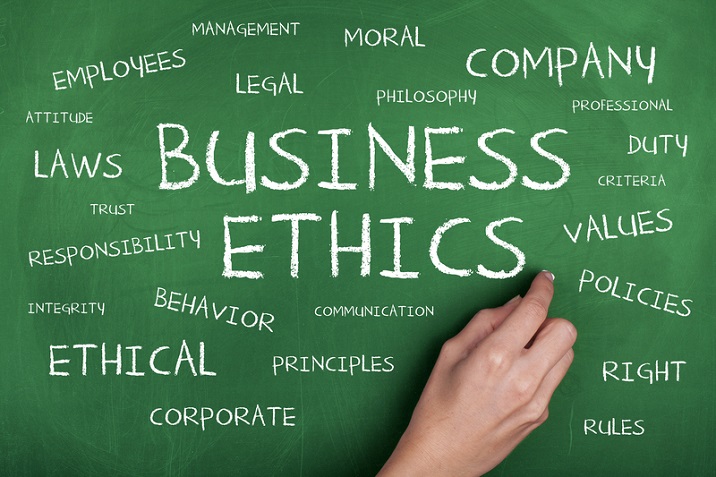Business ethics refer to the principles that businesses follow to operate fairly and transparently, adhering to consumer protection laws while avoiding deception. Business ethics involves striking an equilibrium between moral theories, legal frameworks, and practical business strategies in their operations. Begin your article with an engaging headline that immediately draws readers in and keeps them reading throughout its entirety. This strategy can help build trust with your target audience.
1. Transparency
Transparency is one of the cornerstones of customer trust. Businesses that prioritize transparency tend to foster stronger connections with their consumers while simultaneously creating a competitive advantage in the marketplace. As part of being transparent, this means being upfront about all aspects of a company, such as pricing, policies, customer needs, and stakeholder relations—employees as well as communities in which a business operates.
Consumers are concerned with how their personal data is used and disclosed, as well as ethical practices. Businesses can demonstrate their commitment to ethical conduct by taking part in corporate social responsibility initiatives or other methods of compliance with consumer protection laws.
2. Honesty
Honesty is an integral element of business ethics and can play a key role in building trust between companies and consumers. Businesses that prioritize honesty in their communications and business practices tend to build loyal customer bases and achieve higher sales volumes.
Honest behavior includes being honest and transparent when discussing fees, services, and other business details with customers; responding swiftly and appropriately when responding to customer feedback or concerns; and quickly resolving issues.
Companies that place a strong emphasis on ethical behaviors and standards can become industry leaders and build long-term, mutually beneficial relationships with their customers. Patagonia, an outdoor clothing brand known for its dedication to environmental ethics, is one such example that has done this effectively.
3. Exceptional Customer Service
Offering superior customer service is key to building trust with customers and encouraging repeat purchases and customer loyalty, thus increasing a business’s lifetime value of customers. Consumers frequently contact businesses in search of solutions to issues. Outstanding customer service goes above and beyond to address such concerns, responding sympathetically and providing immediate solutions.
Businesses that put customer service first also enjoy a competitive advantage in overcrowded marketplaces. When they provide excellent service to their customers, they may pay premium prices for products or services provided, leading to increased revenues and customer retention.
4. Satisfaction Guarantees
Guarantees can play an essential role in building trust with customers and showing your belief in your products or services enough to take some of the risk. Customers appreciate this demonstration of faith from businesses and can appreciate such assurance, which often leads to increased sales and customer retention.
Satisfaction guarantees can help businesses streamline their upsell and cross-sell efforts, but only if the business is certain they can live up to its commitments set out in its guarantee. Otherwise, any negative reputational consequences could ensue due to being dishonest with customers and deceiving them.
5. Value for Money
Value for money (VfM) is a cornerstone of consumer rights and business ethics, measuring the benefits of products or services against their costs. VfM (Value for Money) is a process that can be applied in numerous contexts, from purchasing decisions and project management evaluations to evaluations of investments. VfM involves balancing stakeholder needs while making informed decisions that maximize results while reducing costs.
Value for money involves considering all three Es: economy, efficiency, and effectiveness. For instance, increasing pupil numbers to improve efficiency could negatively impact effectiveness.
6. Social Media
Social media can be an effective tool for building trust with consumers. It allows access to information and informed decisions regarding products and services; moreover, consumers have come to expect greater transparency from brands and retailers.
Regulators seeking to protect consumer rights on social media must address the unique issues it raises, such as data privacy and better disclosure of platform policies. Furthermore, finding fairness within an increasingly commercialized and monetized space calls for new approaches to contracts as well as campaigns designed to raise awareness of consumer rights on these platforms.
7. Online Reputation
Online reputation is an integral component of building customer trust with your audience. A business’s online image can be defined by its content publishing, interactions with consumers, social media activity, as well as customer reviews. One of the key aspects of business ethics involves providing accurate and relevant information about products and services to customers in an open manner.
Businesses should avoid hiding negative online reviews by altering or changing them, as this would be considered unethical and compromise their credibility. Instead, small businesses should focus on gathering authentic feedback and responding accordingly.
8. Reviews
Consumer Rights & Business Ethics refer to ethical practices businesses must implement to ensure consumers are treated fairly. It encompasses moral theories, legal standards, and practical business strategies to create an equitable marketplace.
Reviews are essential in creating trust between businesses and customers, so it’s crucial that no fake reviews are published. Our 2020 research revealed that 55% of global consumers desire more transparency from companies regarding how they verify user-generated content such as reviews, including whether businesses edit or delete comments they find unpleasant. When seeking reviews from customers, make it clear they will be shared publicly on an open review platform.
9. Feedback
Feedback is one of the cornerstones of customer relations. It promotes open dialogue and collaboration. Feedback may come through various means such as customer satisfaction surveys, beta testing (when products are introduced to consumers before going public), employee comments, or employee surveys.
Feedback can either be constructive or destructive. Destructive comments typically contain harsh criticism that is intended to be harmful, often without any plans of helping in mind. They may have long-term repercussions for their recipients. Constructive feedback aims to strengthen future performance. This can be accomplished either through appreciative comments or the “feedback sandwich,” where constructive criticism is followed by two positive comments.




